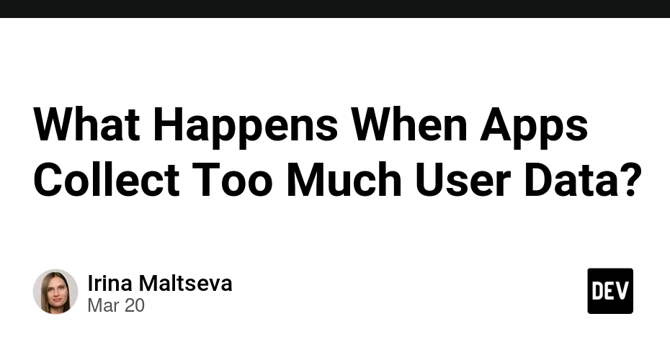Dev
4w
351

Image Credit: Dev
What Happens When Apps Collect Too Much User Data?
- Apps have the capability to collect various types of user data, some of which may not be essential for the app's core functionality.
- TikTok's instance of reading clipboard data without explicit user consent is an example of excessive data collection.
- Excessive data collection is not limited to popular social media apps but extends across the industry due to the value of data.
- Legitimate reasons for data collection by apps include authentication, user experience optimization, troubleshooting, and compliance.
- Apps collect excessive data for purposes such as targeted advertising, AI training, competitive advantage, surveillance cooperation, and data hoarding.
- Excessive data collection leads to privacy violations, security breaches, bias, legal issues, erosion of user trust, and financial burdens.
- Developers hold ethical responsibilities in transparent data collection, data minimization, data security, user control, and avoiding manipulative practices.
- Ensuring ethical data practices is crucial for maintaining user trust and abiding by laws and regulations governing data collection.
- Data minimization, transparency, user control, and security measures are key principles for responsible data collection by app developers.
- Maintaining user trust and ensuring data security are vital aspects of ethical app development in the digital age.
Read Full Article
21 Likes
For uninterrupted reading, download the app